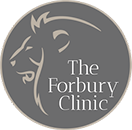Day and Night-Time Wetting
Day and night-time wetting is a common occurrence in children and normally resolves itself over time. Help may be needed when incidences become more frequent.
Overview of Day and Night-Time Wetting
My child still has a wetting incident in the day.
Things to check that can help with this:
- What is your child drinking? If they are drinking blackcurrant / summer fruits drinks these can make having accidents worse. Try to stick to water or milk.
- Is your child drinking enough in the day? It is important for your child to drink regularly at intervals throughout the day (6-8 cups) for the bladder to work healthily.
- Does your child have any difficultly having a poo, or goes for a few days between poos? Going regularly for a poo will help the bladder to function better.
- Does you child wee regularly in the day? Holding on to wees can stop the bladder from working well. Your child should not hold onto their wee for longer than 4 hours.
My child still wets the bed at night.
- This can take time for some children – 5% of 10 year olds still wet the bed at night time.
- Check that your child isn’t drinking a lot towards the end of the day, or even during the night.
- Try to encourage your child to drink more in the mornings and at lunchtimes. Stop drinking 1 hour before bedtime.
- Does your child have any difficultly having a poo, or goes for a few days between poos? Going regularly for a poo will help the bladder to function better at night time.
Next Steps
Get fast access to leading specialists for the swift diagnosis and treatment of urological conditions in a private clinic environment.
If you would like more information or wish to arrange a consultation with one of our specialist consultant urological surgeons then please either Call 0118 920 7040 or complete the form below.
Insured patients
Contact your GP and ask for a referral to the Urology Partnership.
All consultations, investigations and treatments are covered by major insurance companies (depending on policy).
Funding your own treatment
Self-funding initial consultation fee is £205. Follow up fees are £165.
Consultation charges are exclusive of any tests and other investigations that the consultant may wish to carry out.
